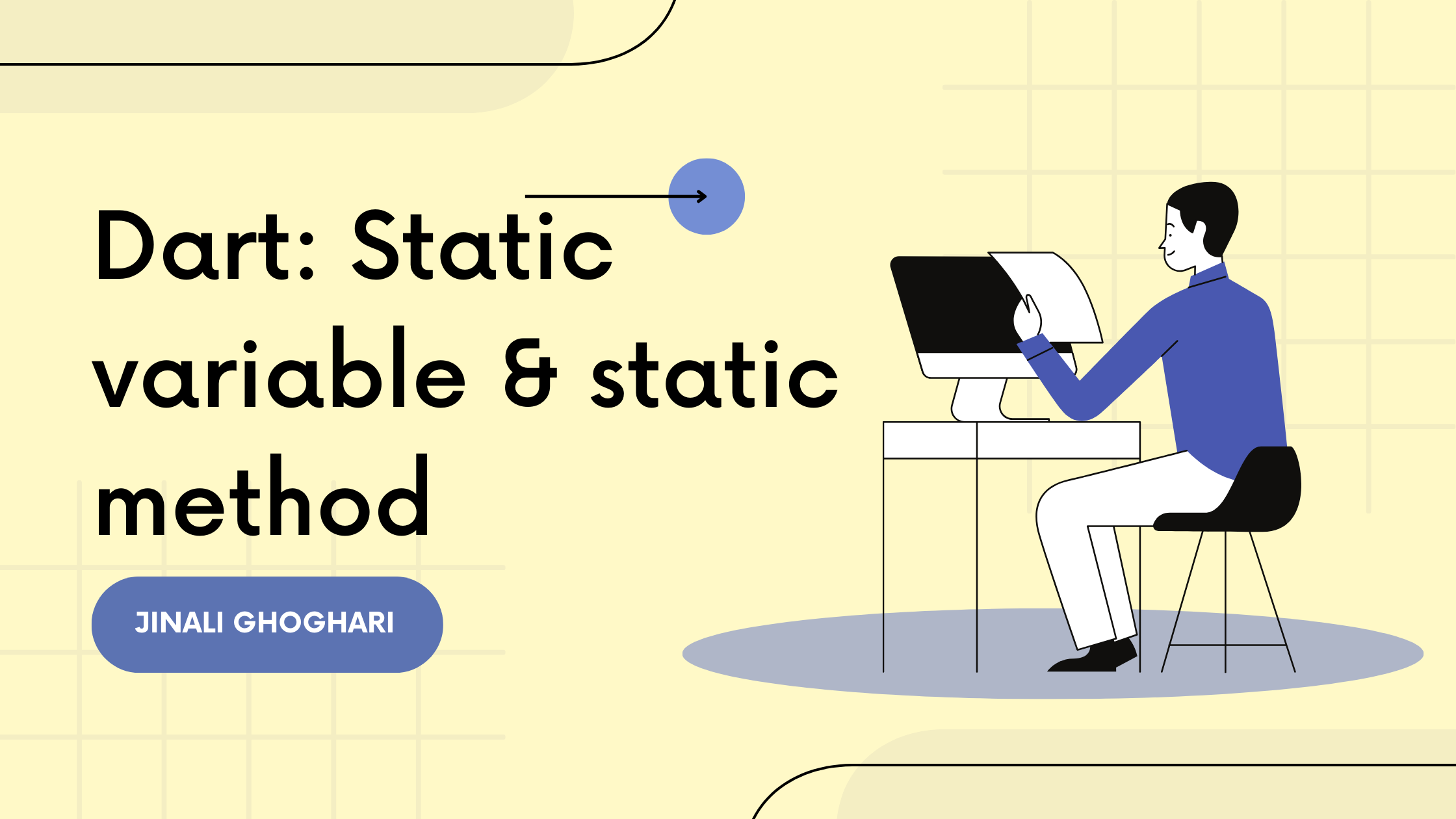Dart: Static variable & static method
 Jinali Ghoghari
Jinali Ghoghari
Static variable or class variable & static method is based on the class.
Static variable:
void main() {
var obj = A();
print(A.y);
}
class A
//int x = 10;
static int y = 20;
}
// output: 20
The class name is required to access the static variable.
So, this static variable is created only once in the entire class.
Static Method:
Static methods (class methods) don't operate on an instance, and thus don't have access to
this.They do however have access to static variables.
An static method is related to a class rather than an object of the class. We can call the static method directly without creating an object of the class.
Static methods are designed in such a way that they can be shared among all objects created using the same class.
void main() {
//var obj = A();
A.display();// Static Method call
}
class A
int x = 10;
static int y = 20;
static void display() {
print(y);
}
}
// output: 20
Within a static method, we can only access static variables.
Benefits of Static Variables and Methods:
Memory Efficiency: Static variables consume memory only once, regardless of the number of instances created, making them memory-efficient.
Shared Data: Static variables allow sharing of data among all instances of the class, enabling centralized management of common resources.
Utility Functions: Static methods provide a convenient way to define utility functions that are not tied to any particular instance, enhancing code organization and readability.
Subscribe to my newsletter
Read articles from Jinali Ghoghari directly inside your inbox. Subscribe to the newsletter, and don't miss out.
Written by
